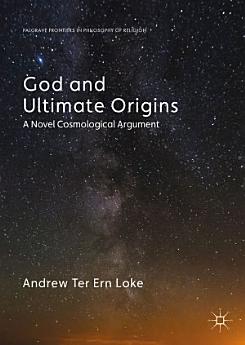God and Ultimate Origins: A Novel Cosmological Argument
Sep 2017 · Springer
5.0star
2 reviewsreport
Ebook
200
Pages
reportRatings and reviews aren’t verified Learn More
About this ebook
This book develops a novel argument which combines the Kalam with the Thomistic Cosmological Argument. It approaches an ongoing dispute concerning whether there is a First Cause of time from a radically new point of view, namely by demonstrating that there is such a First Cause without requiring the controversial arguments against concrete infinities and against traversing an actual infinite (although the book presents original defenses of these arguments as well). This book also develops a novel philosophical argument for the Causal Principle, namely that ‘everything that begins to exist has a cause’, and offers a detailed discussion on whether a First Cause of time can be avoided by a causal loop. It also addresses epistemological issues related to the Cosmological Argument which have been relatively neglected by recent publications, and demonstrates (contra Hawking et al) the continual relevance and significance of philosophy for answering ultimate questions.
Ratings and reviews
5.0
2 reviews
Domenic M
- Flag inappropriate
- Show review history
July 23, 2020
God and Ultimate Origins lucidly compacts a gigantic breadth and depth of philosophical and scientific research on the concept and fact of causality and its importance for the cosmological argument. Causality is crucial to our epistemic foundations. Even Kant could not escape it. The fact that Kant needed causality to account for understanding causal relations seems to beg the question. While to some it may seem that Kant dealt a death blow to the cosmological argument, the objective necessity of and inescapability from causality makes the cosmological argument as realistic as any research in empirical science. Andrew Loke capitalizes on that. He first makes a sweeping survey of the most important issues related to the cosmological argument, particularly the Kalam Cosmological Argument, and observes how each objection has been or could be rebutted. Then, noticing that the KCA as well as the Thomistic argument do continue to invite more objections from theories of time and issues of actual infinities, he tries to combine the both by offering a novel argument which he illustrates with a simple analogy of a series of train cars drawn by an engine. Of course, he observes that there could be disanalogies between the illustration and the idea of causal series. However, he does his best to answer each and tries to explain why his argument has a greater advantage over the others. He also musters a number of scientific research findings to reinforce the a posteriori part of it and displays patient and arduous labor in freezing a wide ocean of research into this 200 page book. A must buy for all interested in the question of ultimate origins.
Warren Hoskins
- Flag inappropriate
- Show review history
May 19, 2018
This was an unconventional book, in that it had information that was in debt, but plain enough to read for those without a doctorate.
About the author
Andrew Ter Ern Loke is Research Assistant Professor in Faith and Global Engagement at the University of Hong Kong. He is the author of The Origins of Divine Christology (forthcoming), A Kryptic Model of the Incarnation (2014), and various articles in leading international journals in philosophy, science and religion, and theology.
Rate this ebook
Tell us what you think.
Reading information
Smartphones and tablets
Install the Google Play Books app for Android and iPad/iPhone. It syncs automatically with your account and allows you to read online or offline wherever you are.
Laptops and computers
You can listen to audiobooks purchased on Google Play using your computer's web browser.
eReaders and other devices
To read on e-ink devices like Kobo eReaders, you'll need to download a file and transfer it to your device. Follow the detailed Help Center instructions to transfer the files to supported eReaders.







